Backstage at Gogol Center, Russia’s main avant-garde theater
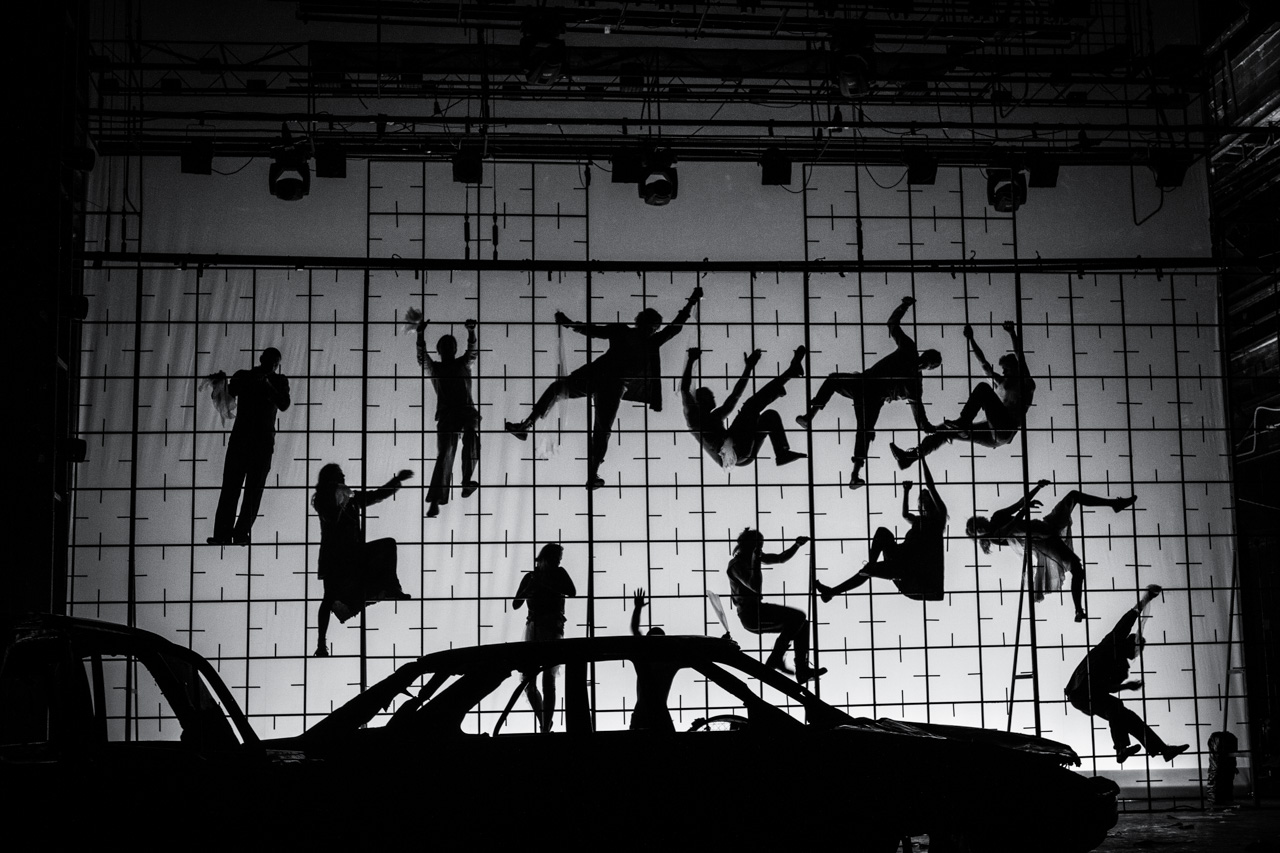
This year’s half-decade anniversary will see the theater stage ten premieres by novice directors and playwrights, alongside ones by the renowned Vladislav Nastashev, Elmars Senkovs, Filipp Grigoryan and others. The director and actors gave behind-the-scenes access to photographer Alex Yocu, whose backstage photos of the company's rehearsals and performances form part of a new book about the life of the theater.
Alex Yocu/Gogol Center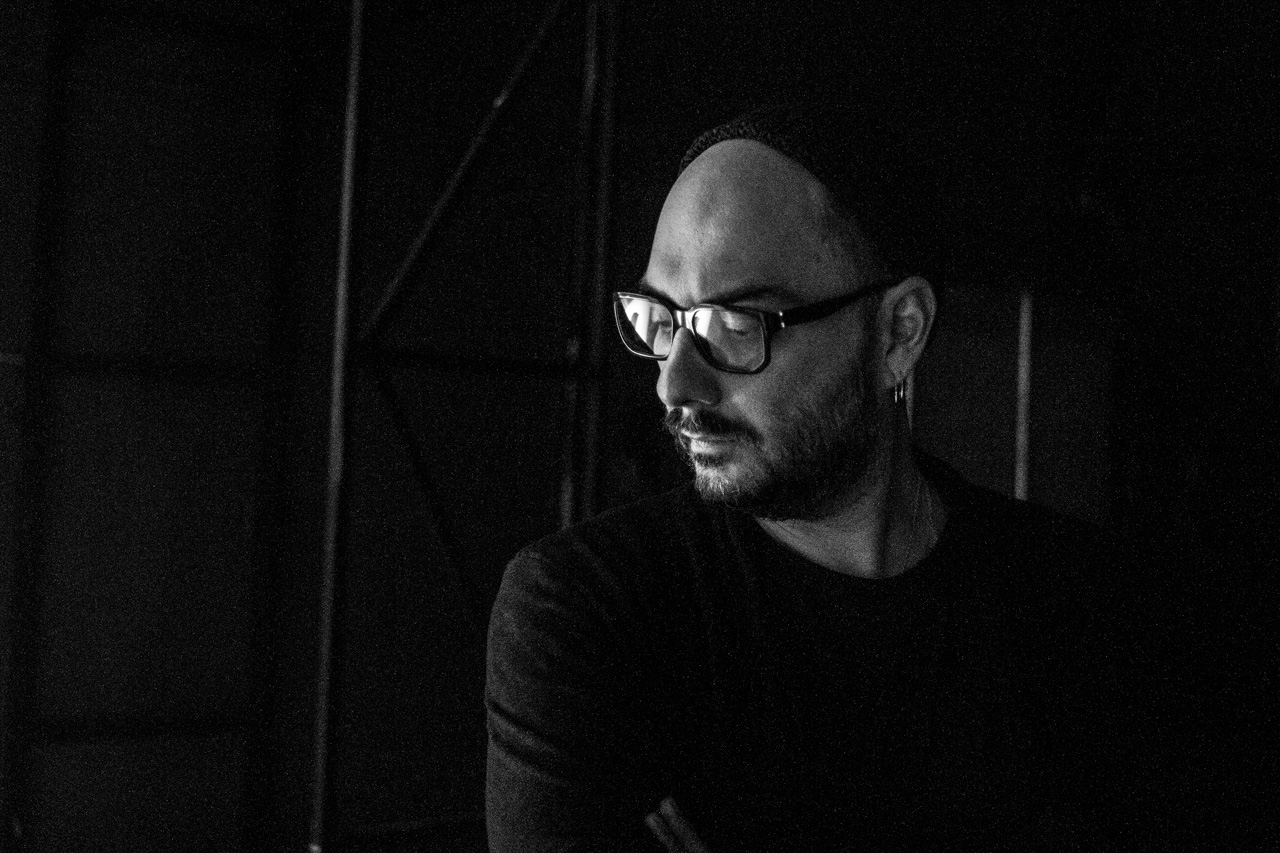
Kirill Serebrennikov, artistic director of Gogol Center: “In the morning, rehearsals begin and the cafe opens. Actors who are still half-asleep go there to drink coffee and share a few jokes. Then they start rehearsing. I'd say that’s the lifeblood of the theater—the process of crafting a new play, a new world. It’s always kept secret, always takes place behind closed doors; outsiders are not allowed to get wind of it...”
Alex Yocu/Gogol Center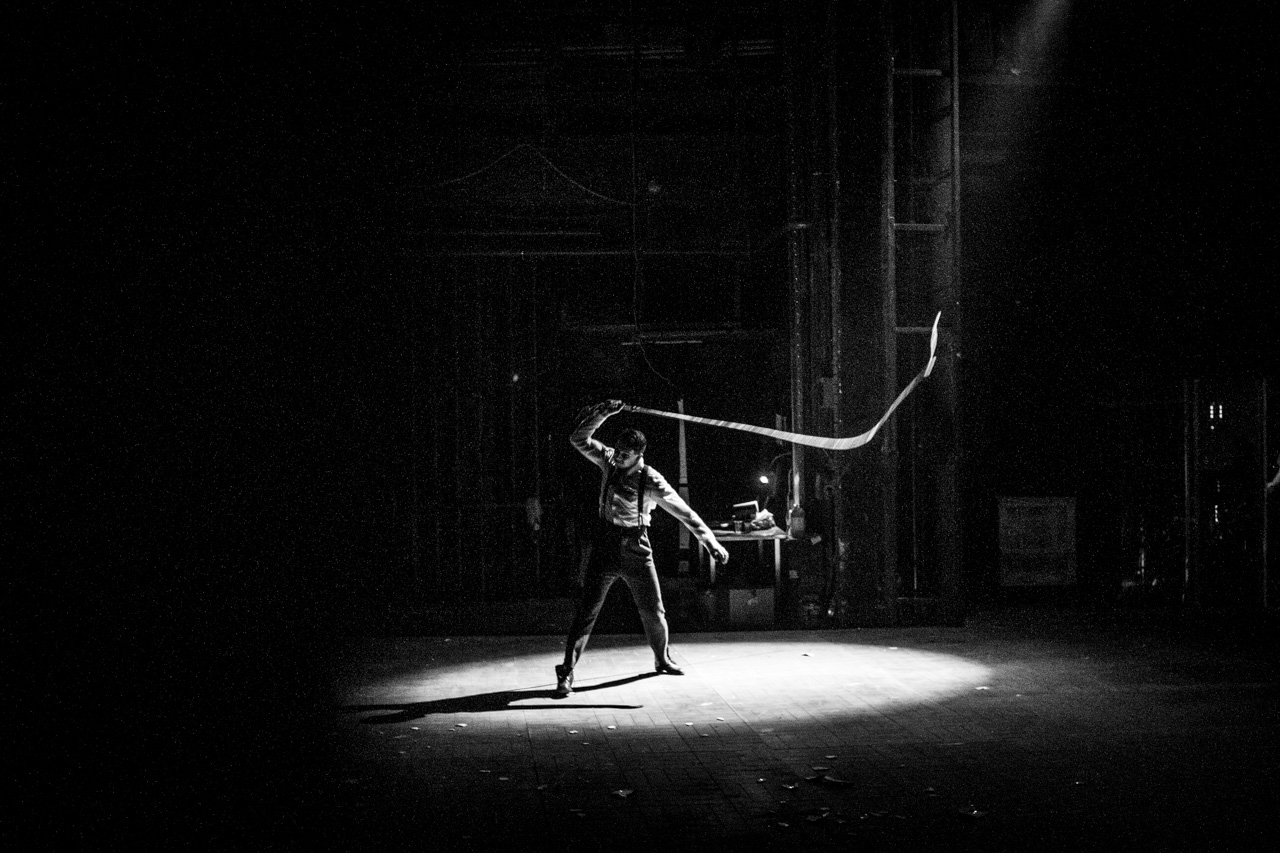
“Kafka” /// In the production by Kirill Serebrennikov, biographical motifs from the writer's life are intertwined with stories from his imagination, while characters from Kafka’s bug-infested fables interact with real people.
Alex Yocu/Gogol Center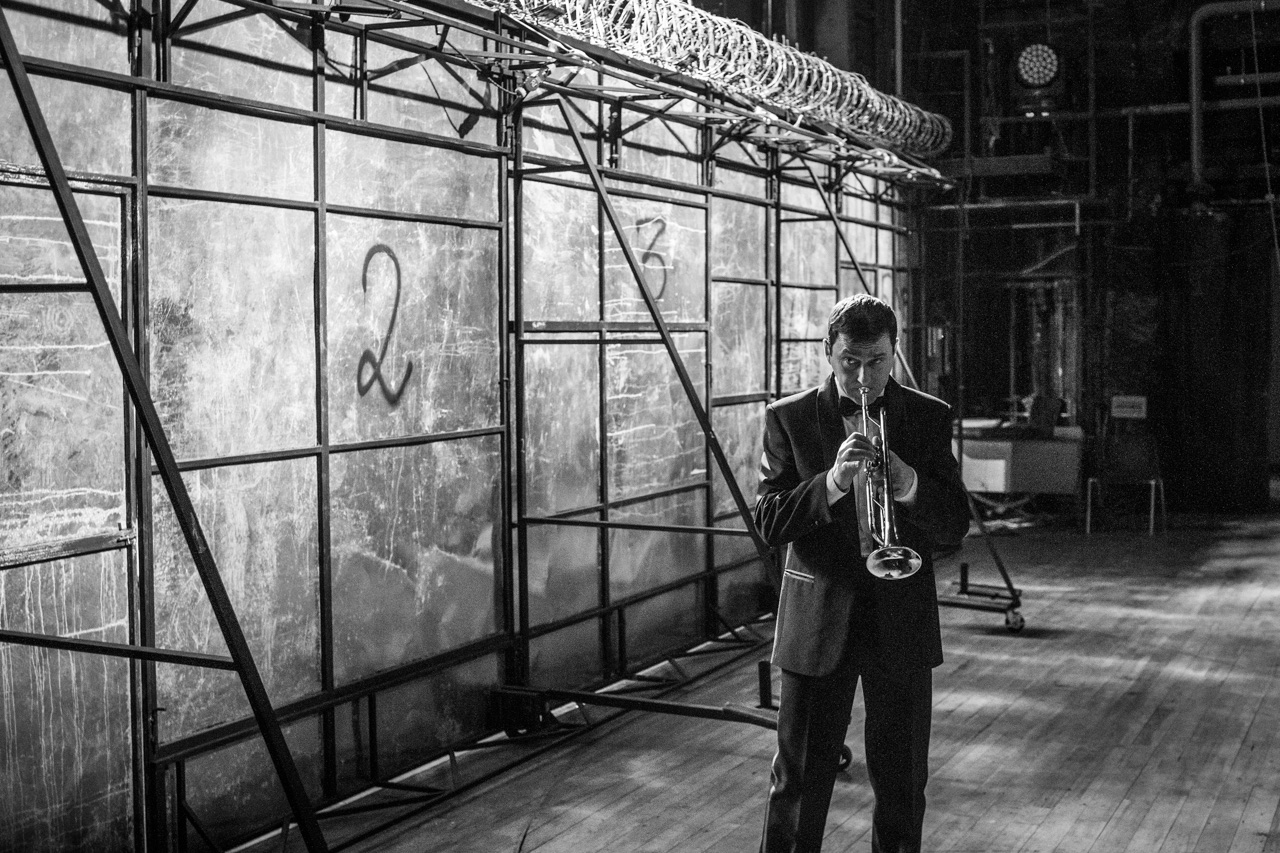
“Who Lives Well in Russia?” /// This staging of Nikolai Nekrasov’s poem, which explores the vast boundaries of Russia, consists of three, wholly dissimilar acts, spanning popular genres from vulgar farce to direct dialogue with the audience.
Alex Yocu/Gogol Center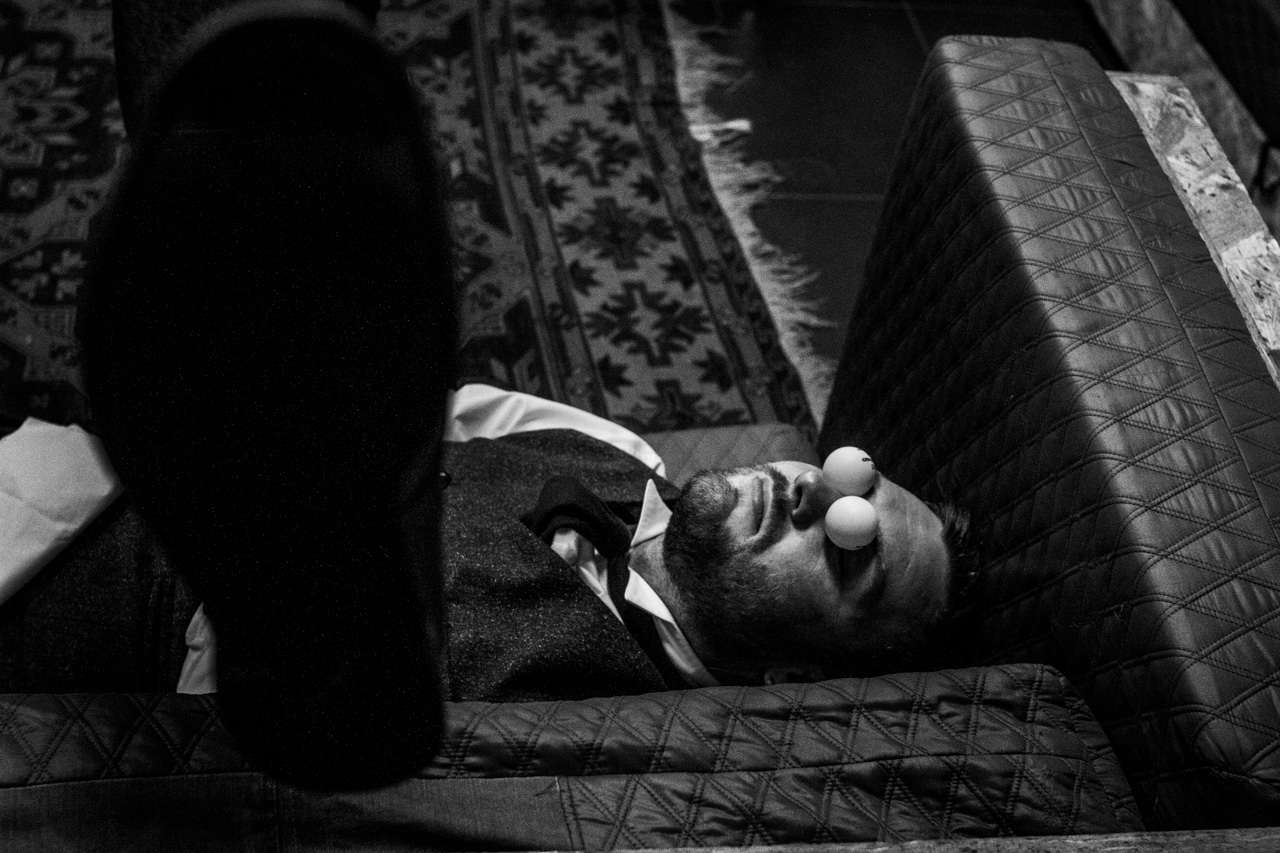
“Kafka” /// As conceived by playwright Valery Pecheikin, characters from Kafka’s “internal biography” appear on stage: from flying dogs and the beetle-man Gregor Samsa to Odradek and people from his dreams.
Alex Yocu/Gogol Center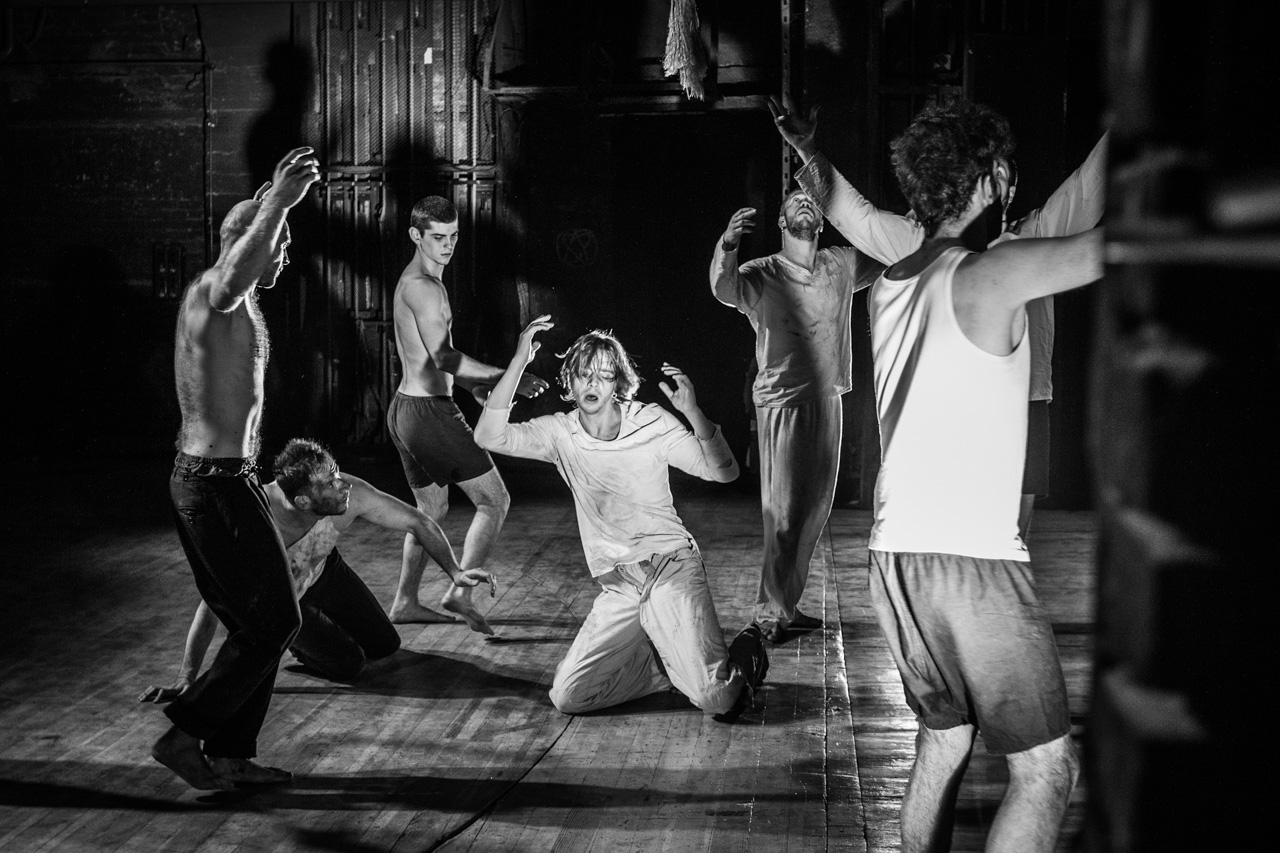
“Who Lives Well in Russia” /// Nekrasov’s poem, written after the abolition of serfdom, poses awkward questions about gaining freedom and the convenience of habitual slavery.
Alex Yocu/Gogol Center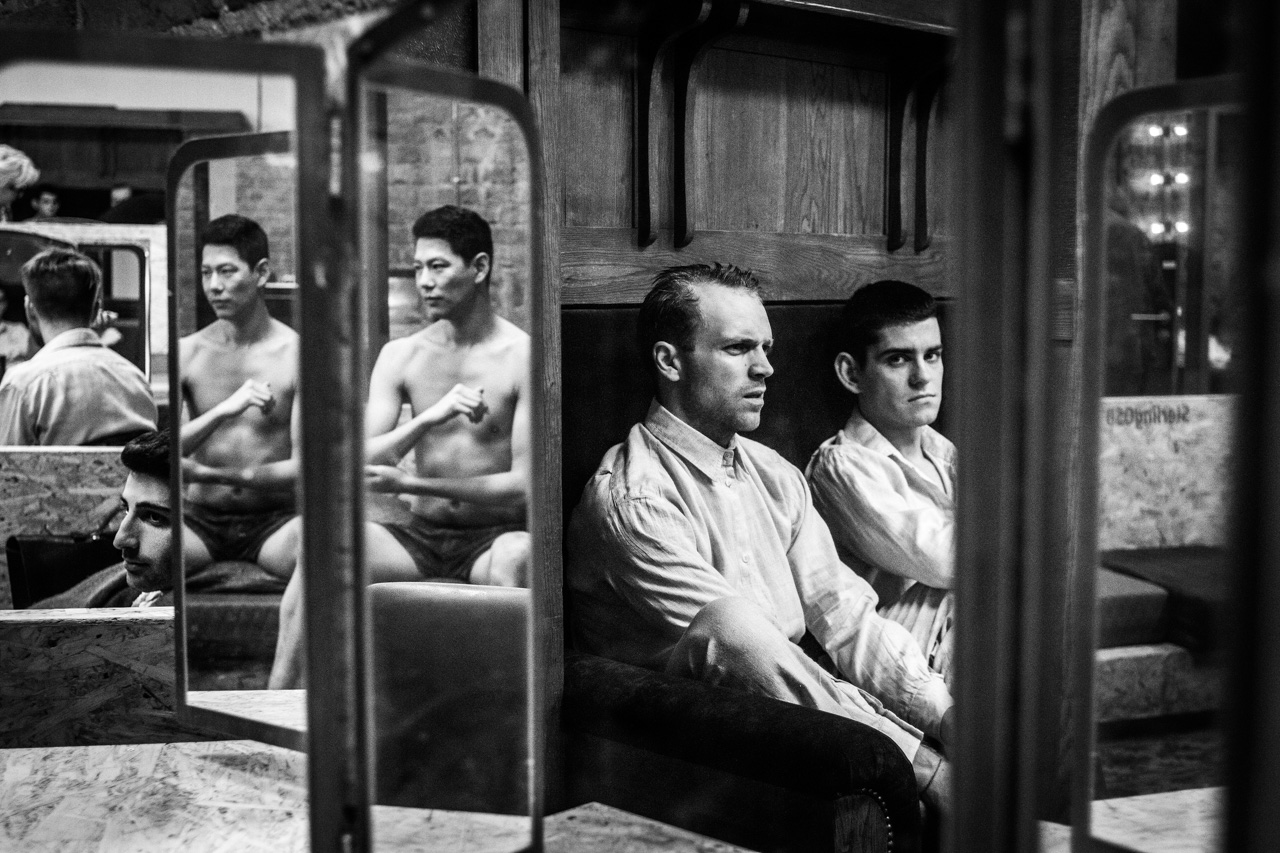
“Mandelstam. The Wolfhound Age” /// The second play in the “Star” cycle is dedicated to the life and work of five poets: Boris Pasternak, Osip Mandelstam, Anna Akhmatova, Vladimir Mayakovsky and Mikhail Kuzmin. At heart, the play is about Mandelstam’s artistic search, followed by his arrest (after an anonymous denunciation), exile and death.
Alex Yocu/Gogol Center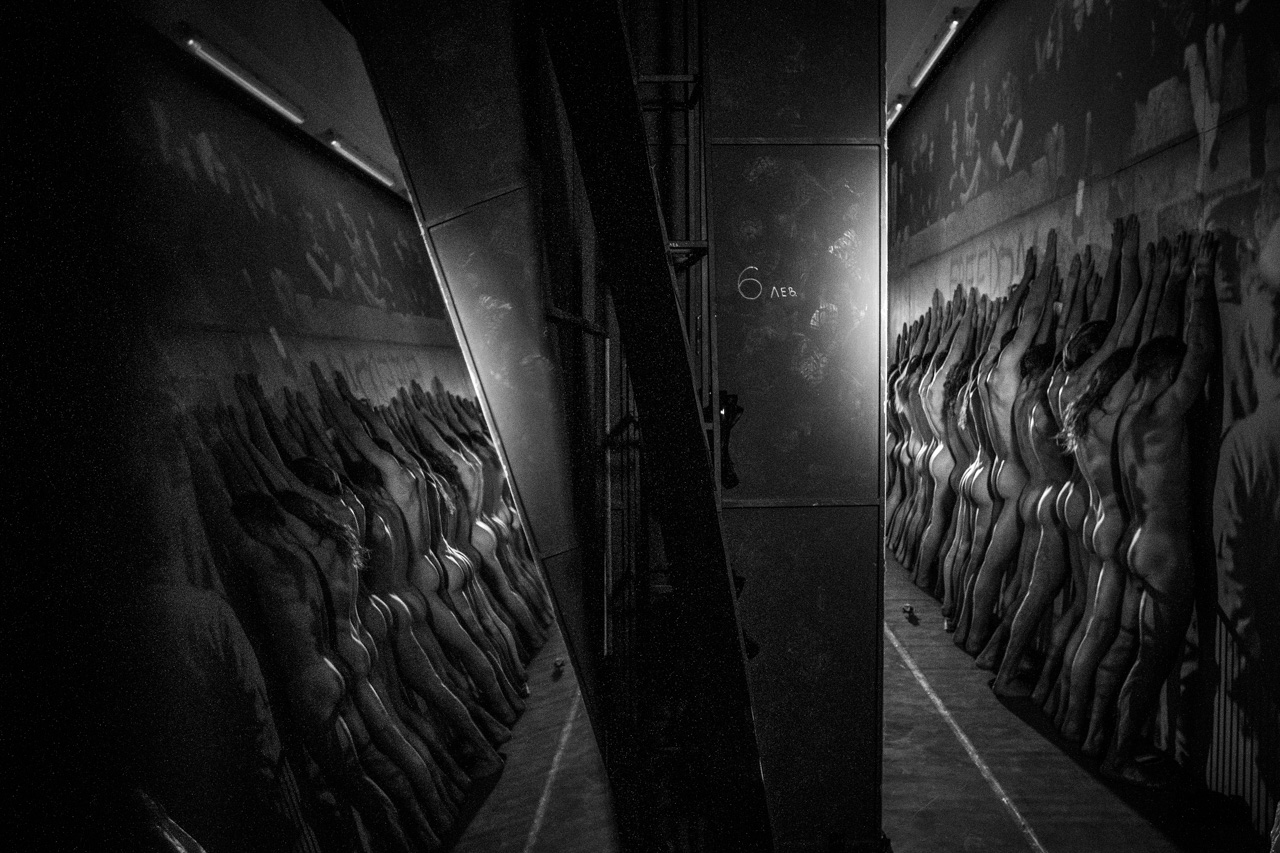
“Müller’s Machine” /// The production is based on the plays “Die Hamletmaschine” and “Quartet” by the German playwright and director Heiner Müller, as well as his letters and diaries. It tells about the human body and the unavoidability of love.
Alex Yocu/Gogol Center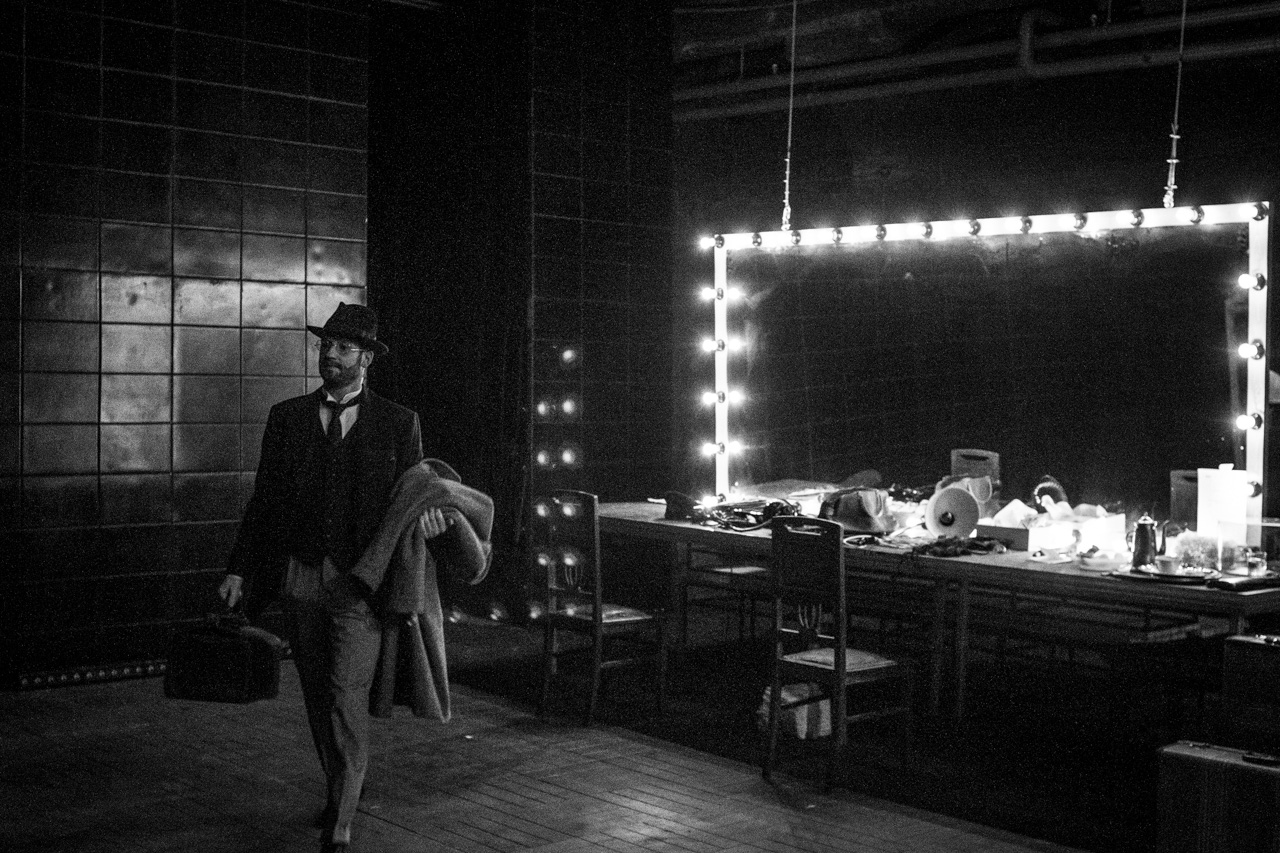
“Kafka” /// Valery Pecheikin, playwright: “Kafka’s absurdity has a tough inner logic that I set out to find. Even today we still seem to inhabit a world where the measure of everything is the absurd. It remains only to reiterate Kafka himself: “I would like to lead the world to a state of purity, truth and sanctity.”
Alex Yocu/Gogol Center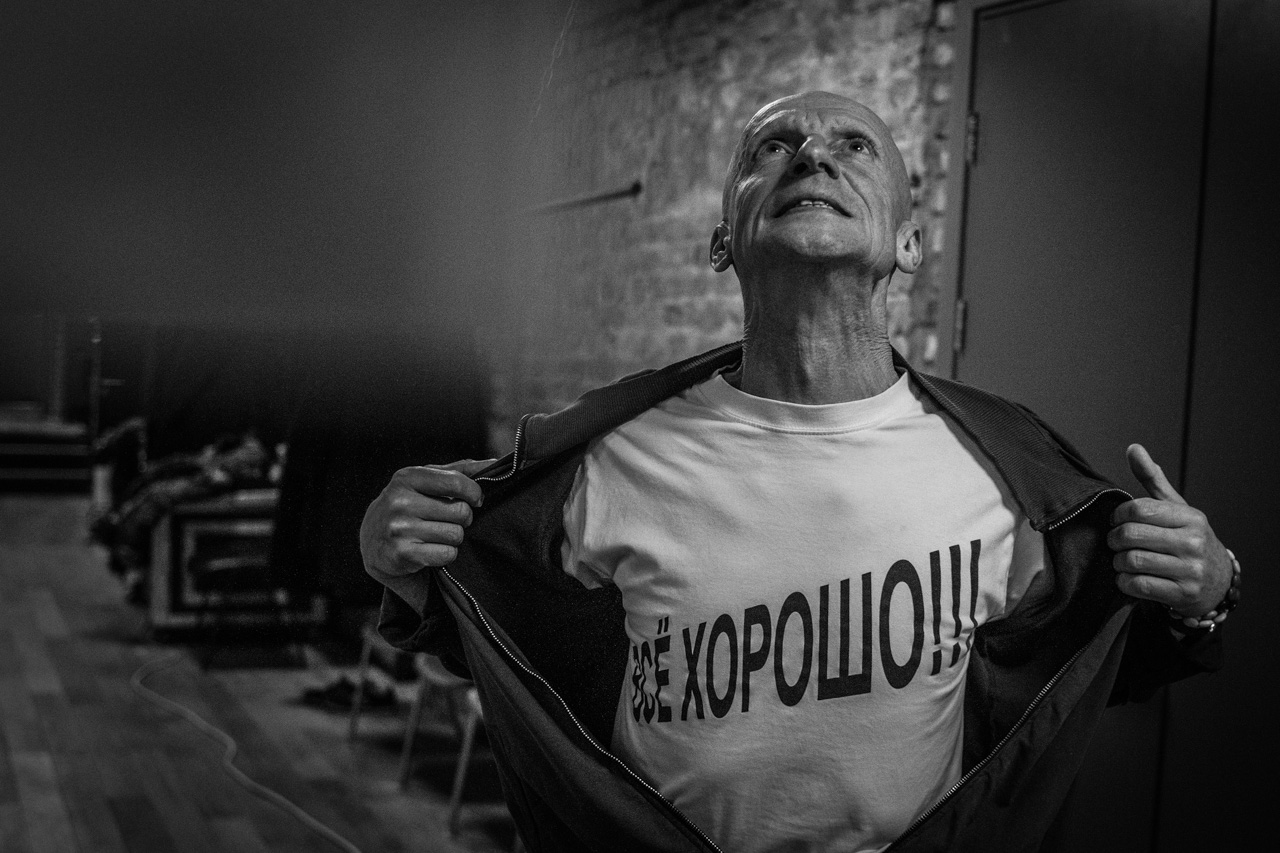
“Mandelstam. The Wolfhound Age” /// “Please do not think of me as a shadow. I do still cast a shadow. But lately I have become decidedly intelligible to everyone. It’s awful. For a quarter of a century, I have been swimming against the tide of Russian poetry, mixing the important with the trite. But soon my verse will merge with it and dissolve in it, having altered something in its structure and composition,” from a letter by Osip Mandelstam to Yuri Tynyanov, Jan. 21, 1937
Alex Yocu/Gogol Center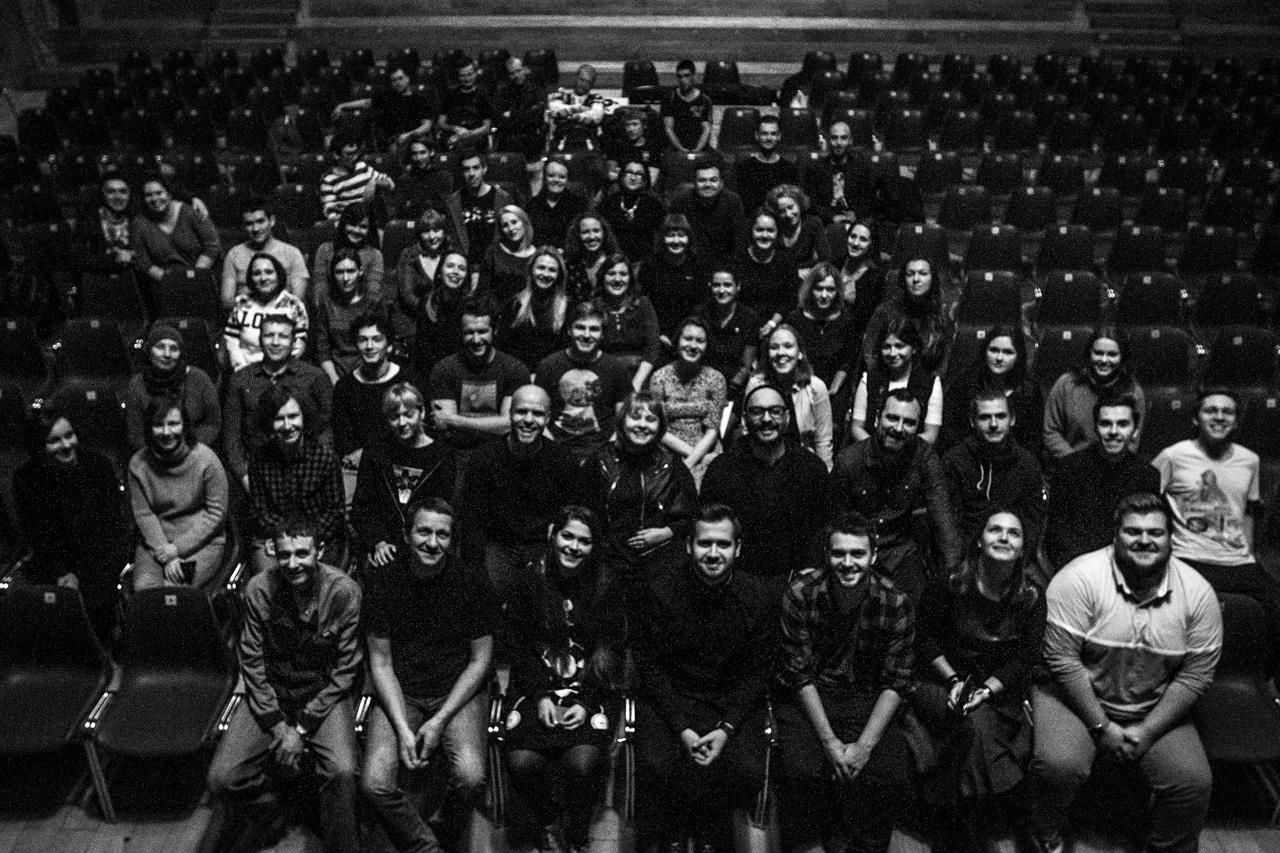
This season, the Gogol Center opened its new Theater Mediatheque. Unique in Russia, the project is an attempt to create a home for all currently available theater video footage and to make the archive accessible to as many users as possible.
Alex Yocu/Gogol CenterSubscribe
to our newsletter!
Get the week's best stories straight to your inbox